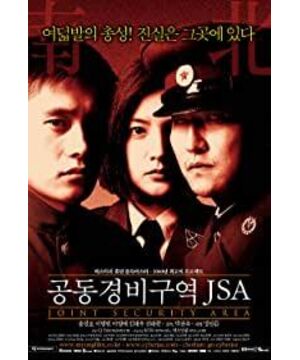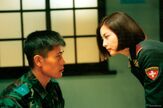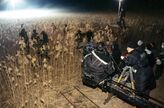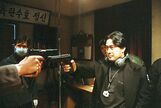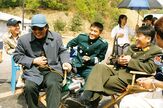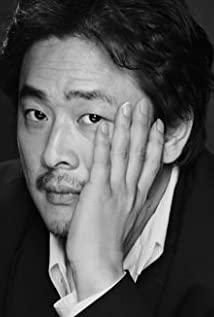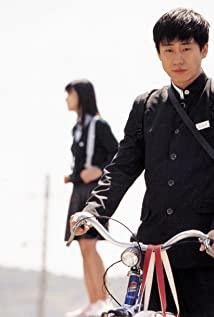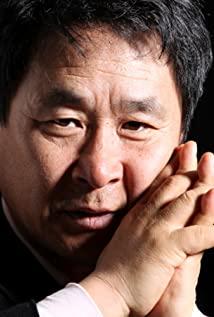Story Background In July 1953, the representatives of the parties who signed the "Korean Peninsula Armistice Agreement" demarcated an enclave of about 800 meters square in Panmunjom as the JSA joint security area, which can also be called a safe area. This is the only place where North and South soldiers can meet face to face. After the agreement was signed, a large-scale repatriation of prisoners of war was completed through a bridge in the security zone, so the bridge was called the "Bridge of No Return". The Korean and Korean outposts on both sides of the Bridge of No Return are known as the "loneliest in the world". One day in the millennium, a shocking bloody incident occurred at the DPRK outpost.
Video Analysis After arriving at the Chaofang post, Sophie saw the scene of the crime and later saw Wu Jingbi, the party involved in the shoulder injury, but when Sophie asked about the situation on the night of the accident, he was reluctant to say a word, and the coroner told Su The injuries of the two people who died. The Zhibi film created a Rashomon-style suspenseful structure. The two Koreas insisted on their own opinions, and both believed that the responsibility rested with the other, and the air on the peninsula was so tense that it was suffocating.
"You don't know Panmunjom, and the way to keep the peace here is to cover up the truth."
Because Sophie's work was handed over to the noon of the next day, in order to find out the truth, she used words to reassure Li Xiuhe, and she started to tell the truth from here. The previous plot seems to be a time-space dislocation deliberately created by the director for the balance of the narrative structure. .
During the confrontation, Wu Jingbi's composure made everyone relax and put down their guns, but at this moment, the automatic flip of the tape recorder suddenly sounded, and Lieutenant Cui's instinctive reaction made Lieutenant Cui immediately draw the gun. After smashing the recorder...
The inside story of the bloody case has now come to light. Under the high-pressure rectification atmosphere of the North and the South, Wu Jingbi and Li Xiuhe's remarks were all lies that had to be made up to protect each other and themselves.
Li Xiuhe, who was about to be transferred to a nursing home, shoved the muzzle of a gun into his mouth amid boundless guilt and self-blame. The picture reverses the plot again, focusing on Xiao Zheng's head is actually the highly nervous Li Xiuhe, and Wu Jingbi's admonition of "calm and courage" is a prophecy.
From the perspective of human nature, the director examines the fact that the North and South of the Korean Peninsula are divided, which greatly arouses the emotions of the audience, making the audience experience the warmth of friendship, the cruelty of reality and the helplessness of death in the throes of tearing.
The ending is the finishing touch of the whole film, also known as the "most classic ending" of Korean movies. In the film, some of the four brothers were photographed by tourists. The color of the picture gradually faded. The invisible barrier and the black and white silent picture express the view on the relationship between North and South of different ideologies: hopelessness.
View more about Joint Security Area reviews


